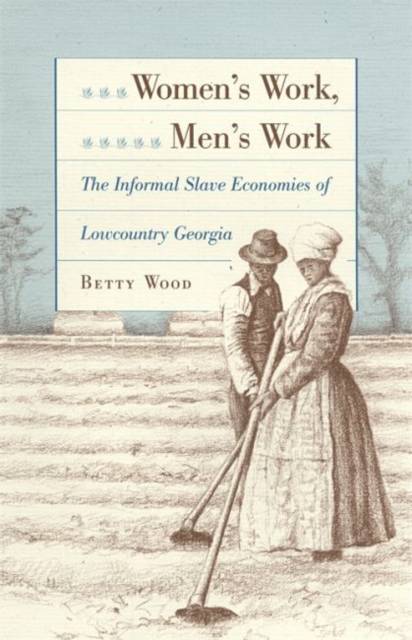
- Retrait gratuit dans votre magasin Club
- 7.000.000 titres dans notre catalogue
- Payer en toute sécurité
- Toujours un magasin près de chez vous
- Retrait gratuit dans votre magasin Club
- 7.000.0000 titres dans notre catalogue
- Payer en toute sécurité
- Toujours un magasin près de chez vous
Women's Work, Men's Work
The Informal Slave Economies of Lowcountry Georgia
Betty Wood
Livre relié | Anglais
77,95 €
+ 155 points
Description
In Women's Work, Men's Work, Betty Wood examines the struggle of bondpeople to secure and retain for themselves recognized rights as producers and consumers in the context of the brutal, formal slave economy sanctified by law. Wood examines this struggle in the Georgia lowcountry over a period of eighty years, from the 1750s to the 1830s, when, she argues, the evolution of the system of informal slave economies had reached the point that it would henceforth dominate Savannah's political agenda until the Civil War and emancipation.
The daily battles of bondpeople to secure rights as producers and consumers reflected and reinforced the integrity of the private lives they were determined to fashion for themselves, Wood posits. Their families formed the essential base upon which, and for which, they organized their informal economies. An expanding market in Savannah provided opportunities for them to negotiate terms for the sale of their labor and produce, and for them to purchase the goods and services they sought. In considering the quasi-autonomous economic activities of bondpeople, Wood outlines the equally significant, but quite different, roles of bondwomen and bondmen in organizing these economies. She also analyzes the influence of evangelical Protestant Christianity on bondpeople, and the effects of the fusion of religious and economic morality on their circumstances. For a combination of practical and religious reasons, Wood finds, informal slave economies, with their impact on whites, became the single most important issue in Savannah politics. She contends that, by the 1820s, bondpeople were instrumental in defining the political agenda of a divided city--a significant, if unintentional, achievement.Spécifications
Parties prenantes
- Auteur(s) :
- Editeur:
Contenu
- Nombre de pages :
- 264
- Langue:
- Anglais
Caractéristiques
- EAN:
- 9780820316673
- Date de parution :
- 01-02-95
- Format:
- Livre relié
- Format numérique:
- Genaaid
- Dimensions :
- 161 mm x 236 mm
- Poids :
- 621 g

Les avis
Nous publions uniquement les avis qui respectent les conditions requises. Consultez nos conditions pour les avis.






